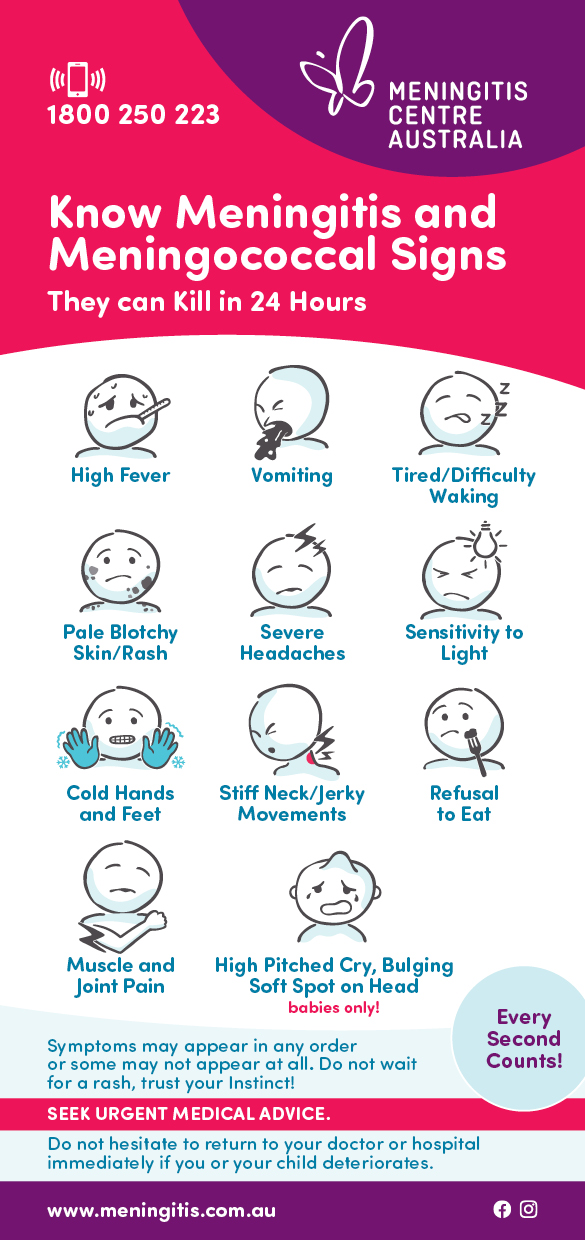All of the symptoms Riley exhibited initially were behaviours that he would exhibit at varying times during his life, especially when he was first teething, such as mild fever, not breastfeeding well, not sleeping well. He would arch his back when he was tired and cranky.
One Thursday afternoon he had a mild temperature and was a bit cranky. On the Friday he was slightly more cranky and was sleeping spasmodically during the day and night. On the Saturday he started arching his back every now and then and was crying a lot. We put it down to the tooth that was very close to erupting, but in the back of my mind I had the feeling that something else was wrong. On Sunday, he had gone from a mild fever of 38 to one of 40 and he was inconsolable, lethargic and arching his back even more. I decided to take him into emergency at 9.30am, just in case he had developed an infection of some persuasion.
The GP at the hospital was about to send us home with panadol but thought she had better check with a blood test and cultures, as she was having difficulty finding a source for the fever. By 12.30pm she found that he had a bacterial infection and he was anaemic. She inserted an IV. She sent us for x-rays which came up with nothing abnormal. I overheard her talking to the Paediatric Consult who suggested she admit us and administer broad spectrum antibiotics. The Paed would be down to the hospital asap. I overheard a discussion relating to meningitis and the words meningococcal and pneumococcal. I began to get very concerned. I rang my husband and broke down in tears.
We were admitted to the hospital. Our little baby had become more and more lethargic throughout the day until he was constantly in and out of consciousness. Very soon after being admitted, he began convulsing. They then got me very worried as there were difficulties stabilising him after this. The Paed came running in and immediately said that pneumococcal meningitis seemed likely.
We were transferred by ambulance to Princess Margaret Hospital to get a lumbar puncture.
While waiting for the results we were admitted into isolation. It was now 2am. At 3am the doctor came in and confirmed that Riley did have pneumococcal meningitis and outlined what the treatment would be. My very vivid memory of the grave look on the doctors faces did not fill me with a great deal of confidence, coupled with the statement that they “will do all they can”.
A central line was inserted on the Thursday afternoon, by which time he had started to respond to the antibiotics. At least he would stop crying for a short time and he was getting interested in solid food again. Up until then he had been on the breast for every waking minute – the only way to stop him from crying.
We spent a week in Princess Margaret Hospital and another week in St John of God Hospital under the care of our family paediatrician. These were the longest two weeks of my life.
At this point in time we have been out of hospital for 5 weeks and it doesn’t appear that there are any serious side effects. Maybe these will become apparent further down the track. I hope not. The biggest problem now is that it appears Riley may be immuno-compromised and he may have to endure monthly injections of gammaglobulin to assit his immunity. It seems that the major outcomes at this point are concerns for the future health of our baby boy.
We were not made aware of the vaccine that is available for pneumococcal. It makes you feel very guilty when you know that it could have been prevented in the first place.
I found the huge publicity campaign regarding meningitis made me hypersenstive to the sysmptoms, which was good. My concern is that a lot of people think that they must have the rash before you do anything. I had conflicting information from so many sources and still do not know what the answers are.

